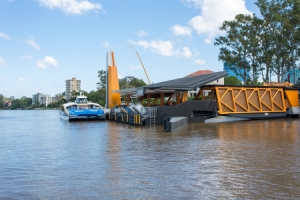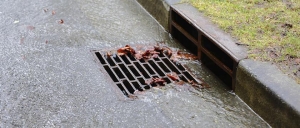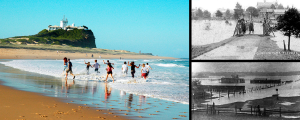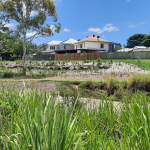Upcoming Events
Managing Long Life, Hidden Assets
| Developed to assist asset management practitioners apply best practice in accordance with PN5 and ISO 55000 AM Standards for inspection, condition and performance assessment for stormwater drainage assets. | |
| Participants will be able to develop an action pipeline for how they can best progress their organization along the path to meeting the objectives of PN5 | |
| Explore the practicalities of how to prepare and undertake a stormwater drainage network condition survey including sampling of the network and specifying the services of external providers. | |
| Learn about using the WSAA Conduit Inspection Code Appendix D for SWD | |
| Learn about using the AUS-SPEC Tools and resources for SWD asset management | |
| Opportunity to network and share your experiences. | |
Objectives
- Understand the use of the new PN5 to improve SWD asset management practice taking into account ISO 55000 requirements.
- Be able to follow a consistent approach to SWD survey and condition assessment
- Have the tools to scope and plan a condition assessment project to achieve application of PN5 good practice
- Learn about the latest trends for identifying and scoring of defects in SWD assets.
Outcomes
These Workshops will give you the knowledge and skills to;
- Develop your own action pipeline to guide the journey for applying PN5 for your SWD assets
- Confidently update your SWD asset register and break it into its components
- Develop reports on the overall condition grading of the SWD network
- Produce risk based Action plans – maintenance and renewals derived from the condition analysis
- Have better information on which to analyse and report on valuations, depreciation and financial planning for the SWD system.
Who should attend
- Stormwater drainage asset practitioners,
- Engineers
- Asset Managers
- Technical Officers
- Field staff involved in inspection and condition assessment and asset management of SWD Assets
- Applicable to local government, public works or other organisations (public or private)
Presenters
- Alf Grigg | Principal A Grigg & Associates P/L
- Peter Way | Chair NAMS.AU, IPWEA Peter is project manager and principal author of the SWD Practice Note 5.
- Kirk Bloomfield | Manager GSDS
- John Thomson l Geospatial Integrated Services
* Presenter/s will vary between locations.
For more information and details of a workshop in your area, head over to the IPEWA website by clicking HERE
Get the your own copy of the latest Practice Note HERE
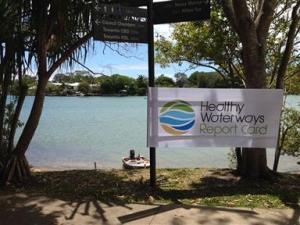
The Report Card provides an annual assessment of the pressures facing our waterways, their current environmental condition (A-F grade), and the level of social and economic benefit the waterways provide to local communities (1-5 star rating).
As their organisation transitions into the new entity Healthy Waterways and Catchments, they have leveraged the combined skills and resources of Healthy Waterways and SEQ Catchments to further build upon their holistic monitoring and reporting approach. This includes working with the Council of Mayors to assess the risks to environmental values in each sub catchment. A component of this assessment will be released through the 2016 Report Card, identifying the sub catchments in most need of action to reduce sediment pollution.
To release the results, four launch events will be held simultaneously across South East Queensland.
Central Launch
Host: Healthy Waterways and Catchments
Venue: Riverlife Centre – Naval Stores, Lower River Terrace, Kangaroo Point, Brisbane
Northern Launch
Host: Unitywater
Venue: Mooloolaba Yacht Club, 33-45 Parkyn Parade, Mooloolaba QLD 4557
Western Launch
Host: Somerset Regional Council
Venue: Kilcoy Information Centre, 41 Hope St, next to Yowie Park, Kilcoy, QLD 4515
Southern Launch
Host: Scenic Rim Regional Council
Venue: Tamborine Rainforest Skywalk, 333 Geissmann Dr, Mt Tamborine QLD 4272
For more information and/or to register your attendance, head over to http://healthywaterways.org/eventscalendar . You don’t want to miss this one!

River Basin Management Society invite you to attend:
A Discussion on the 2016 Healthy Waterways and Catchments Report Card
“Please join us for a conversation with Dr Emily Saeck, Senior Scientist with Health Waterways and Catchments, to discuss the results of the 2016 Report Card. The Report Card provides an annual assessment of the pressures facing our waterways, their current environmental condition (A-F grade), and the level of social and economic benefit the waterways provide to local communities (1-5 star rating). This is the second year of the newly evolved Report Card, which provides a deeper understanding of the current pressures, benefits we receive, and importantly what needs to be done to protect and improve our waterways.
Please visit the Healthy Waterways and Catchments website to view the Report Card results after the launch on 16 November: http://healthywaterways.org/report-card”
To Register your attendance – click here
Sponsored by;

Time: 8.30am for a 9.00am start and finishing with lunch from 12.30pm
The commencement of the new Planning Act in mid-2017 has been a driver for the Department of Infrastructure, Local Government & Planning (DILGP) to review how State interests are expressed in the planning system. In November 2016, DILGP released consultation drafts of theState Planning Policy (SPP), the State Development Assessment Provisions and the Planning Regulation. These drafts can be downloaded from this website. The draft SPP includes some important changes to the State interest – water quality.
The changes associated with the policy are likely to have some noteworthy implications for urban development, communities and the environment.
Stormwater Queensland is hosting a forum to assist in understanding how the Draft SPP proposes to change regulatory requirements for stormwater quality management.
The event is recommended for those involved in urban stormwater planning, policy or development. Submissions on the draft SPP close 10 February 2017 so the Forum is also recommended for any person or organisation considering making a submission on the water quality aspects of the policy.
An expert panel from a broad cross section of the industry has been convened for this event to provide different perspectives on the policy. The panel will include a range of speakers including:

Sponsored by;
Time: 8.30am for a 9.00am start (concluding with lunch from 12.30pm)
As part of any development approval, local governments request developers to meet stringent stormwater quality requirements before allowing stormwater to discharge to local receiving waterways or adjoining public stormwater infrastructure. For over a decade now, these requirements have been met by use of various types of proprietary and non-proprietary stormwater treatment devices or systems, including Gross Pollutant Traps, Oil and Silt Arresters, Sediment Fore-Bays, Trash Racks, Litter Baskets, Sediment Ponds, Swales and Bio-Retention Systems, etc. All of these systems need maintenance in order to consistently meet the quality requirements of their design. When reflecting on our efforts in stormwater quality improvement over the last decade, a number of important questions arise, including:
- Are these systems, both public and privately owned, being maintained according to manufacturer specifications and/or design guidelines?
- Who is responsible for maintaining these systems? How is local government responsible for publicly owned assets? What obligations do private asset owners have to maintain these assets?
- What regulatory or incentive frameworks are currently in place to ensure these assets are maintained? What regulatory or incentive frameworks could be considered in the future?
- How does local government keep a track of these assets? Do they know where they are located? How much data or information do they have?
- How do they use this data or information? How do they store it? Who is responsible for it?
- To what extent are systems owned by private entities, other than local governments, being maintained?
Stormwater Queensland is hosting a forum to assist in understanding the management situation for public and privately owned systems and to find answers to the above. The event is recommended for those involved in urban stormwater planning, policy or development, asset management and maintenance. An expert panel from a broad cross section of the industry is being convened for this event to provide different perspectives on this topic.
An expert panel from a broad cross section of the industry has been convened for this event to provide different perspectives on this topic including;
- Claire McAsh – Senior Environmental Engineer, City of Gold Coast
- Russell Cadman – WSUD Compliance Officer, Blacktown City Council, NSW
- Aaron Marmara – Operations Supervisor, Cleanaway
- Mark Bibby – General Manager, Regen Australia
- Jack Mullaly – Crazed Founder, Ideanthro
There are some fantastic examples from the UK and other parts of the world that use a naturalistic approach to floodplain management. The question is, however, can these types of techniques be practically applied in SEQ? Given that the local climate and other components are vastly different to these areas, will these approaches be feasible and if so to what degree and how would they be best used?
Recent discussions within some organisations have pinned hopes on naturalistic floodplain management as “the answer” to several common issues, which makes it well worth considering. However, there are unresolved issues regarding the importance of revegetation weighed against the potential for increased flood levels upstream (and potential decreased flood levels downstream) also the quantification measurement and modelling of such approaches, climate, storage, practicality as well as the cost of implementation.
Key items that will be discussed include:
- Applying Natural Floodplain Management Techniques in Queensland. What is the likelihood for success?
- Lessons learned from the UK on Natural Floodplain Management. Application of natural techniques should as floodplain reengagement, revegetation, infiltration and temporary storage through leaky weirs etc.
- Discussion surrounding the future Bremer River Catchment Study and the opportunities for integrated water approaches
- Application of revegetation etc in Bremer/Lockyer systems and possible implications for the regional area.
- The power of using flood mitigation as a mechanism to get other benefits (water quality, bank stabilisation, more trees in the ground)
- Hurdles such as property resumptions, increasing flooding upstream whilst benefiting downstream property, lack of legislation power to enable greater community good and working with landowners on useable land.
- Previous case studies and a quick look at what Ipswich is looking at for a natural floodplain management pilot project
Stormwater Queensland is hosting a lunchtime presentation to facilitate a transfer of ideas and assist in understanding a natural floodplain management approach.
Phil Smith (Waterways Health Officer) and Adam Berry (Floodplain Management Engineer) from Ipswich City Council will be co-presenting and will provide time at the end for discussion/questions and answers.




